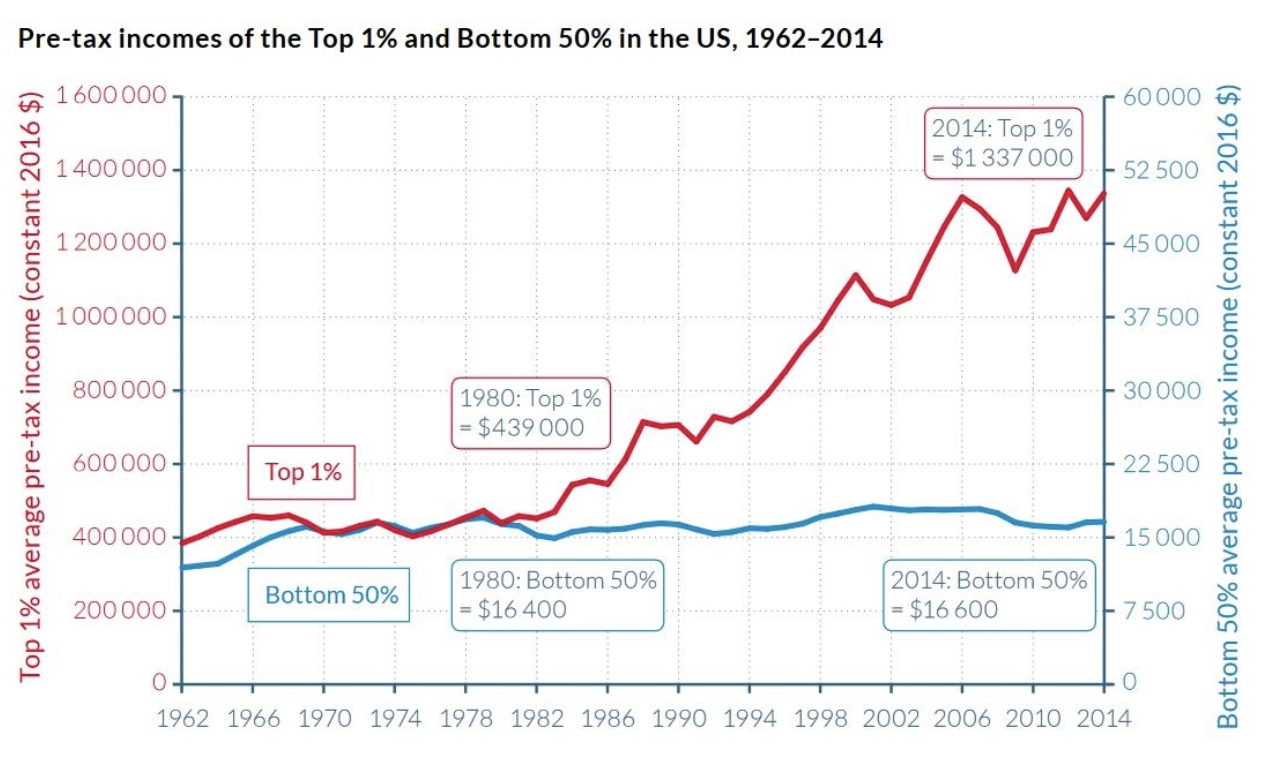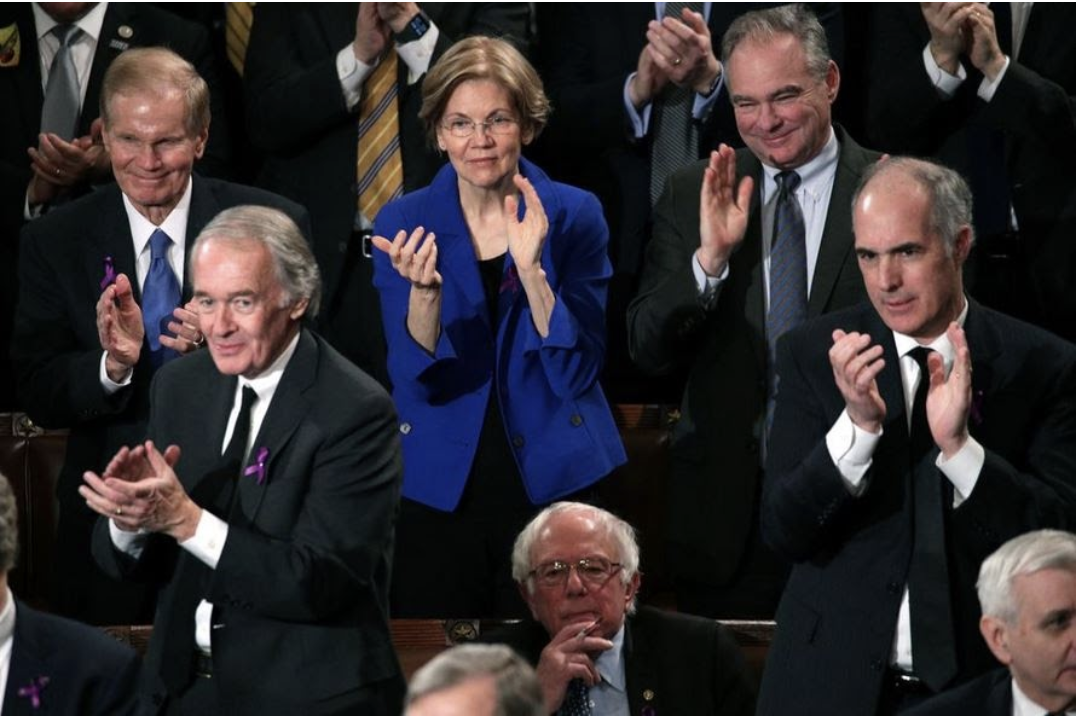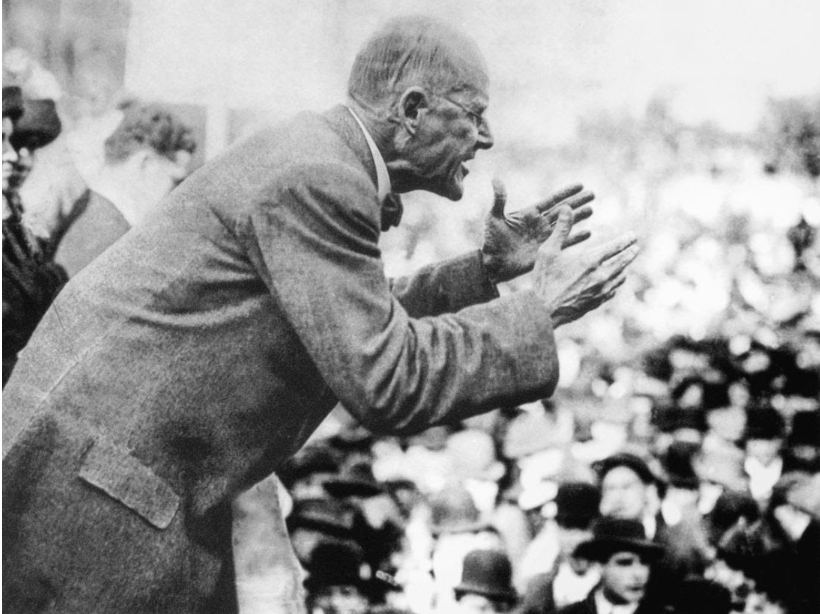
JEFFREY SUZUKI – FEBRUARY 13TH, 2020 EDITORS: ALEX CHENG
In 2015, at Burlington’s Waterfront Park, Senator Bernie Sanders spoke in front of a handful of supporters and onlookers, declaring his intention to challenge Hillary Clinton. By all accounts, he was a massive underdog. In addition to being aged, the little-known Senator from Vermont unabashedly declared himself as a “democratic socialist,” intending to “create an economy that works for all” and to continue the legacy of the New Deal. Despite the American stigma against socialism and the fact that Sanders began the race as a virtual unknown among Democrats, he ended the 2016 democratic race earning over 43% of the popular vote. As a democratic socialist, he famously advocated for policies like “Medicare for All” and a $15 minimum wage. However, these policies are not actually part of democratic socialism.
To define democratic socialism, we first require a working definition of capitalism, since that is the economic system which socialism seeks to replace. In essence, capitalism is a system where the means of production are privately owned by individuals. For example, a person may own a factory and hire workers to produce goods and services. These individuals might never even see the factory with their own eyes, yet still possess voting shares that can influence major decisions in the company. Meanwhile, workers provide the labor to continue producing revenue for the shareowners, who dictate how to spend it and often choose to pay themselves through stock buybacks or dividends.
Of course, there are some exceptions to the above depiction. In some cases, companies may decide to engage in profit-sharing or provide stock options to employees. However, these employee ownership plans apply to a small proportion of employees—only around 14 million Americans out of over 164 million Americans in the labor force. One of the quintessential arguments of socialists is that this system of capitalism is undemocratic and exploitative. It is undemocratic because the vast majority of the power lies with the owners of the means of production who can make decisions that impact their workers without the workers’ input—unless workers collaborate and agree to withhold labor through unionization and strikes to force concessions regarding working conditions, pay, and other issues. Another argument of capitalism being exploitative is that capitalists are the ones ultimately profiting off of economic growth at the expense of their workers.
This argument of exploitation can be analyzed through the lens of research on inequality. According to economists Gabriel Zucman and Emmanuel Saez, the fact that the top 1% of income earners in the US have collected 27% of all gains in income since the 1990s is mostly a capital-driven phenomenon. That is, this difference in income differential is not the result of doctors or lawyers earning more through hard labor; rather, asset owners, the capitalists, are collecting more from corporate dividends, bond holdings, and other means than before. The share of those who profit off of these assets is relatively small: the top 10% of Americans possess about 77.2% of the total wealth (capital) in the United States while the bottom 50% of Americans possess only about 1.1% of the wealth. In other words, poorer Americans collect virtually no capital income through owning wealth and must almost solely depend on the income they earn by selling their labor. This is one explanation for why the incomes of the bottom 50% of American earners’ have practically stagnated since the 1970s, as shown below.

Source: Global Inequality Report 2018
Democratic socialists hope to address this exploitation by advocating for a world where workers ultimately control the means of production—a world where the workplace is democratic and workers may elect the leaders of their organizations rather than shareholders. One example of democratic socialism in action is The Cheeseboard Collective, a popular worker-owned co-op that has churned out pizzas in Berkeley since 1971. Another is the Berkeley Student Cooperative (BSC), a non-profit that provides low-cost housing to its members at rates hundreds of dollars lower than the normal market rate in Berkeley, with student residents running every level of its operation. Contrary to popular belief, democratic socialists do not advocate for authoritarian communism.
The question remains: how does Sanders’ $15 minimum wage fit in democratic socialism? It doesn’t. Rather, policies like the $15 minimum wage can be better characterized as social democratic policies. While having unfortunately similar names, these two orientations are vastly different. On one hand, social democrats advocate that the state support the welfare of its citizens by sufficiently regulating capitalism and mitigating its negative effects. One example is to obligate capitalists to pay a living minimum wage to their laborers they hire. On the other hand, democratic socialists condemn capitalism as a whole, arguing that workers should be the ones ultimately in control of the means of production. This would constitute laws that actively encourage or require employee ownership of businesses and the development of cooperatives.
There is actually a large overlap in what social democrats and democratic socialists support—including universal health care and fully-funded college tuition, among others. But the ultimate distinction between democratic socialism and social democracy is their view towards capitalism: social democrats tolerate capitalism while democratic socialists view it as inherently exploitative. A social democrat would support rent control legislation to stop apartment owners from overcharging tenants while a democratic socialist would have the apartment complex governed by the tenants themselves, setting rents and policies through voting and other democratic processes. This difference explains the fundamental split between presidential candidate Elizabeth Warren and Sanders: Warren is a lukewarm social democrat while Sanders is a revolutionary democratic socialist.
Warren is pro-capitalism, going as far as to applaud Donald Trump for proclaiming that the United States will never become a socialist country. In fact, Warren became a Democrat in 1996 because the Republican Party was no longer “principled in its conservative approach to economics and to markets.” Her policies can be construed as a restoration of the “good capitalism” the United States experienced in the 1950s and 1960s with strong unions and higher marginal income taxes with some environmentally friendly policies.

Warren applauds Trump while Sanders remains seated | Source: Boston Globe
In addition to being further left on practically every major issue compared to Warren, Sanders identifies capitalism itself as being the root contaminant in politics and seeks to use the blunt force instrument of the electorate (i.e. “Political Revolution”) to decimate the effect of wealth in elections, disassemble dysfunctional economic and political institutions, and fundamentally change politics. As ridiculous as this “political revolution” may sound to cynics, Sanders currently has over a million volunteers enlisted in his campaign. As a point of comparison, the historic Obama campaign had anywhere from 3,000 to 15,000 volunteers over the course of his 2008 campaign against Hillary Clinton. As president, he plans to continue organizing the masses to unelect officials who oppose his policies, regardless of whether they are Democrat or Republican. In contrast, Barack Obama disassembled his team of volunteers and donors before being sworn in as president, which is regularly cited as having hampered his first-term agenda.
With the exception of one weakly socialist policy, Sanders’ trademark policies are his socially democratic ones. If Sanders’ policies don’t constitute democratic socialism, it is natural to ask why he would label himself as such. After all, the consequences of adopting this label could be politically disastrous. There are a number of possible answers to this. One possible answer is that he is actually a democratic socialist and his comical inability to lie led him down this traditionally disastrous path strewn with failed—and dead—American socialists. For now, he might advocate for strong social democratic policies, because he recognizes that the country is not prepared to transition to true democratic socialism during his four to eight year tenure, and aims to lay the groundwork for democratic socialism in the future. Whether by guaranteeing health care, providing tuition-free university, or strengthening unions, a Sanders administration would place workers in a position to create pressure against the profiteering capitalists in the existing political system. According to Sanders, under a “Medicare for All” system, workers no longer have to worry about losing their company-provided health insurance, strengthening their negotiating position against the owners of corporations. In other words, providing the basic necessities of life would give working class Americans the means to strike, negotiate, and politically organize more effectively.

Eugene V. Debs Orating | Source: The New Yorker
There is perhaps another reason why Sanders identifies himself as a democratic socialist. One of Sanders’ personal heroes is Eugene V. Debs, a socialist himself. As a highly influential union leader and political figure in the early 1900s, Debs earned 3.4% of the vote (~900,000 people) in 1920 while he was in prison for condemning US involvement in the First World War. The fact that Debs was a socialist did not stop him from pushing for a number of social democratic policies, such as ending child labor and banking reform, both of which would be enacted during the Progressive era. Even if Debs did not achieve his goals as a socialist, he fundamentally shaped the political landscape of the United States as a principle fighter for the laborer.
Perhaps Debs’ most visible legacy is his influence on Sanders who has followed an eerily similar path. Sanders has been arrested for protesting against segregation. Like Debs, he also unequivocally denounced and protested the war of his generation—the Vietnam War. It is clear that Debs had a profound impact on Sanders, as Sanders produced a documentary on him and hung a photograph of him in his office during his tenure as mayor. Sanders’ campaign for the Democratic nomination can be considered a continuation of the socialist legacy of struggling against the system to earn another half loaf of bread for the working class—small victories, but victories nonetheless. Sanders’ half loaf is “Medicare for All” and a litany of other social democratic policies in his march toward political revolution.
Featured Image Source: QNS
Disclaimer: The views published in this journal are those of the individual authors or speakers and do not necessarily reflect the position or policy of Berkeley Economic Review staff, the Undergraduate Economics Association, the UC Berkeley Economics Department and faculty, or the University of California, Berkeley in general.



